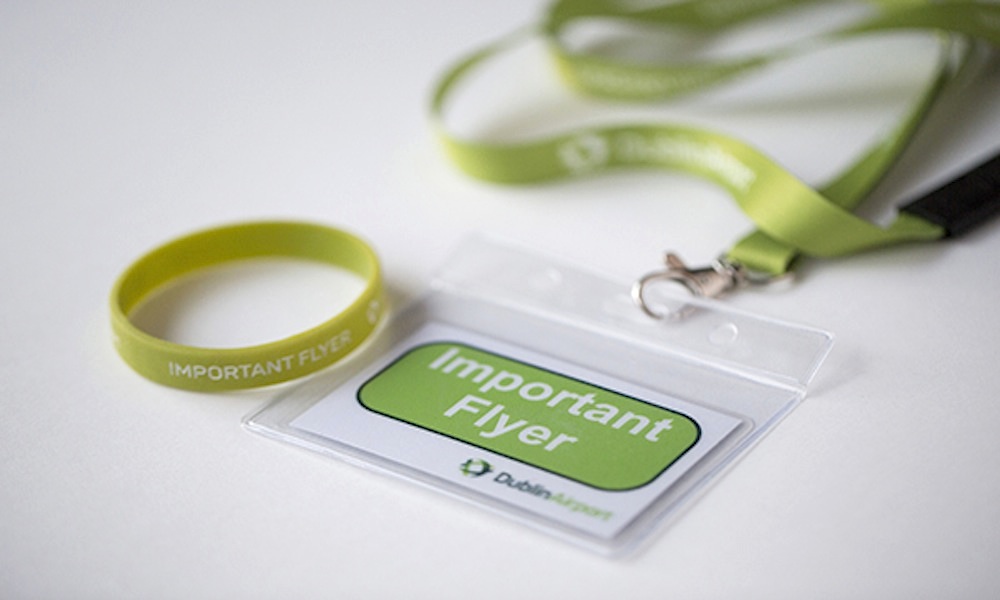
Michelle Buckley, “a travel agent, but firstly, a mammy to a little boy eight-years-old with autism”, provides some answers to some questions that you may come across.
As a travel agent, I know how daunting it can be when dealing with a family travelling with a child who has autism, especially if it’s their first time travelling. They may have questions to which you may not have the answers.
Autism is a spectrum disorder and no two children are the same. It is known as the invisible disability as it has no ‘look’ about it. Children on the spectrum range from severe to high functioning. Some children may be non verbal and have no eye contact, while others will be over verbal and almost want to show you how to make the booking!
What you may not see is how anxious the child and family may be about breaking their everyday routine and going on holiday. This can be a huge cause of stress, for something that most of us take for granted. That is where we as travel agents can help during the booking process to make the journey as easy as possible.
Dublin Airport
A couple of years ago Dublin Airport introduced a new initiative called the Special Flyer programme, aimed at assisting people with disabilities, autism being one of them.
Many children, and adults alike, with autism find the airport a very daunting, frustrating place due to the noise, queues and other elements in the environment that may over-stimulate their senses, and this initiative allows the child or adult to wear either a lanyard or a green arm band that says ‘Important Flyer’, which allows the well-trained staff to recognise the passengers as possibly needing extra assistance on their journey through the airport.
The airport also includes visual aids for Terminal 1 and Terminal 2 on its website that you can print off and give to the client to allow them to use as a tool to become familiar with the surroundings of the airport before they even begin their journey.
When you have your booking made, clients should make contact with the DAA by filling out the form on the website at:
www.dublinairport.com/at-the-airport/passenger-information/special-assistance/autism-asd. Or they can send an email to: [email protected].
Once the application is received, DAA will contact them to arrange for proof of diagnosis to be shown, either in the form of an IAA card, or a letter from a doctor stating that the person travelling does have autism.
Another good tip when confirming the booking is to arrange assistance at the airport, with the airline and OCS. Doing this allows the passenger with autism to receive the level of care they need for an easy transition through the airport. The OCS desk in Dublin Airport is located at the end of the departures area, and clients should make their way there before approaching check in.
Clients will then be brought through check in and security without the need for long queues, reducing the risk of sensory overload and anxiety, which can result in a meltdown. With the airline, you can arrange pre-boarding so that the client can board the aircraft first in order to get settled before the flight.
Dublin Airport has also announced that it will be building a sensory room in the airport, which is a very welcome addition for the autism community. This will make travelling a lot easier, as if things are too much for a child or adult on the spectrum in the main concourse of the terminal they will be able to utilise this space to better regulate themselves.
Cork Airport
Cork Airport has recently introduced the similar Sunflower Lanyard initiative as part of its ongoing Hidden Disabilities Programme. This programme includes visual guides, the Picture Exchange Communication System (PECS), and tips for travelling through the airport. See: www.corkairport.com/at-the-airport/services/autism-asd
Shannon Airport
Shannon Airport also has an awareness programme for children with special needs, providing baseball caps and wristbands for identification. A purpose-built sensory room, open 24/7, is located across from the children’s play area in Departures Lounge and beside the Aviation Gallery.

The airport also offers pre-arranged tours for anyone who may like to familiarise themselves with the process of travelling through the airport before their flight. To avail of this, they can email: [email protected]. Or they can watch four videos:
* Arriving at the Airport
For more information about Shannon Airport’s assistance programme and identification assistance system, call +353 (0)61 712000 or email Passenger Assistance at: [email protected]
Airlines
Some airlines have great tools on their websites called Visual Aids. For example, see www.aerlingus.com/travel-information/travelling-with-children/travelling-with-an-asd-child/#/tab-0-pre-flight for Aer Lingus.
Cruise Lines
When booking a cruise, please make sure to fill in the special needs form to advise staff of a diagnosis, as this may be particularly important – especially when utilising the kids club.
Also, check their webites for information. For example, see www.royalcaribbean.ie/discover-cruise-holidays/accessibility/other-needs/ for Royal Caribbean International.
Disneyland Paris
Disneyland Paris offers a great discounted rate for carers. A letter must be provided from a doctor stating the diagnosis and, once you arrive at the park, present your diagnosis to the Town Hall just inside the gates, and you may be able to obtain a skip the queue pass for rides.
Make a Difference
There are so many tools out there to assist people who are living with #Autism. However, for people who have children who are newly diagnosed, and beginning their journey, it can be a minefield. So we, as travel agents holding these little pieces of knowledge, can really make a difference to their holiday.
…
Follow Up
Editor: If you would like to follow Amanda Biddulph on Facebook (Michelle Buckley is her maiden name used for work), join her page: Don’t judge a book




